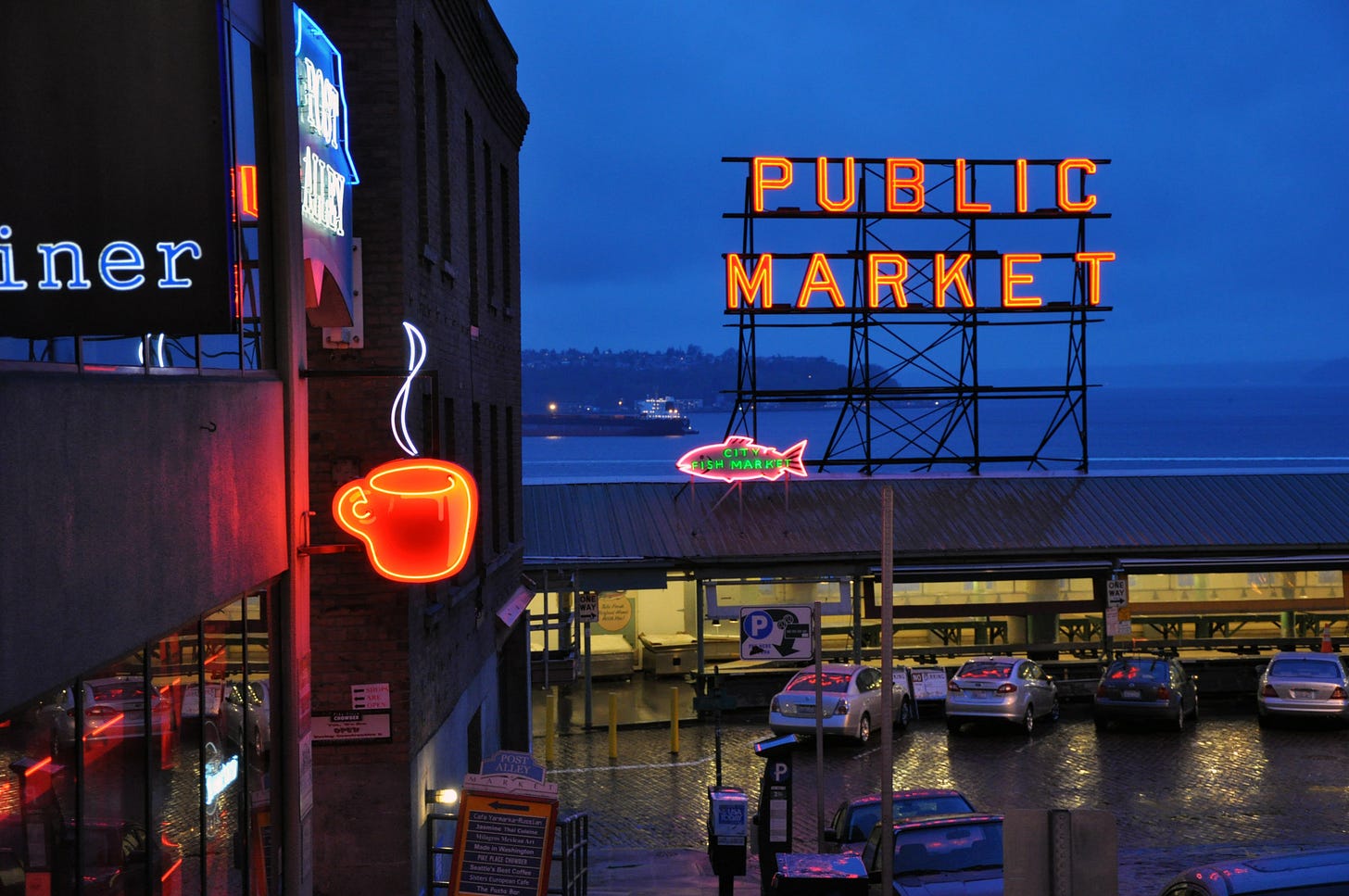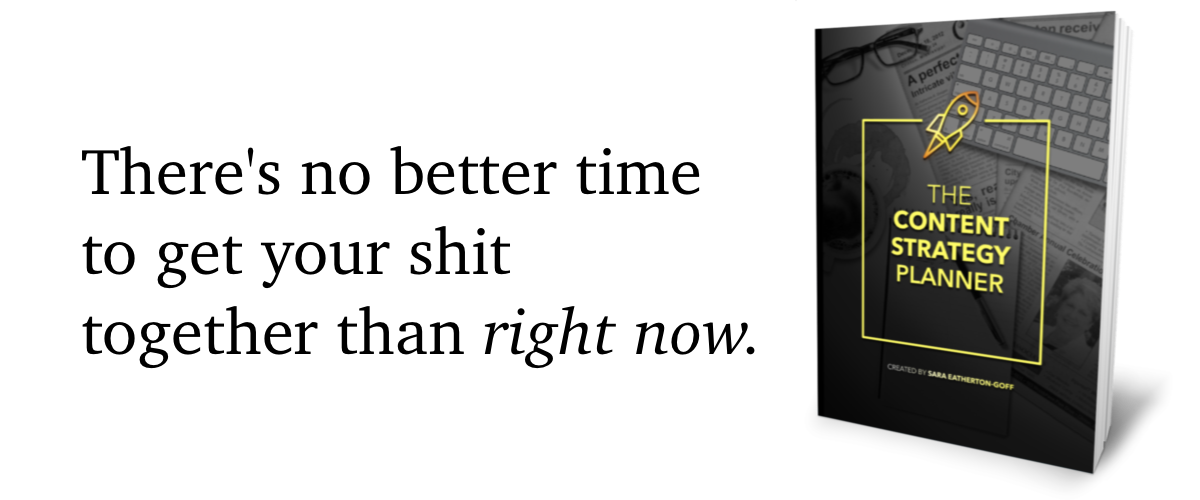Silently saying goodbye
When there are no local friends left, and you suck at making and maintaining friendships | plus, a love letter to the city of Seattle
This newsletter has moved!
To receive new and infrequent musings, the latest fiction and non-fiction narratives, updates, and "life nuggets”, subscribe here.

Most everyone I care about has left Seattle.
Late last year, a local friend moved about an hour outside the city. My sister-in-law is moving three hours away today. And my closest writer-friend is in her ninth month of a two-year digital nomad journey, and revealed she and her spouse (likely) won’t end up back in Seattle afterward.
Even outside of just my former local friends, I’ve heard that the city is “too expensive” and “the homelessness crisis has gotten too bad.” I’ve heard that “it’s not the city I moved to anymore,” and so on.
And although I get it, it’s hard to imagine leaving this place.
Moving to Seattle and what the city and county offer literally saved my life.
I don’t feel like I owe the city anything. But understanding what it’s provided me, knowing that nowhere else in the world may ever be able to be “home” as much as this city due to it and its resources being able to manage health issues, its mild climate (for said health issues), and the fact that it’s actually the least expensive place to manage just those factors definitely helps me find all the good in it, and more easily dismiss the (perceived) bad.
I think I understand the “Seattle Freeze” better now, though.
Why bother spending time nurturing friendships when they don’t stay anyway.
It’s a transient city. It’s got a hot tech market, which means lots of strategizing tech peeps advancing their careers by company-hopping frequently. (This current tech hiring freeze1 won’t last forever.)
My Baby Boomer dad criticizes my Millennial generation because “none of [us] commit to an employer.” I countered that employers should treat and pay their employees better, then maybe turnover won’t be so high. But that may only be a fraction of the job-market reality.
If you’re unfamiliar, Seattle is known for being an “unfriendly” city. Locals seem to not bother making friends with transplants because nobody stays anyway.
But to verify my hand-me-down information, I looked it up and the Urban Dictionary2 describes the Seattle Freeze as:
…a social phenomenon commonly found in the Seattle area. It concludes the majority of Seattle residents as snobby, cold, unfriendly people with a fake-polite exterior. Many people move here with the impression that Seattleites are friendly and laid-back, but upon moving quickly realize how superficial and forced that “friendly” exterior really is. There is a lot of debate as to where this social dysfunction comes from. Some say it's the nerdy tech population, some say it's the Scandinavian culture, some say it's the weather, and some even say it’s the transplants’ fault.
Based on my interactions on the Seattle subreddits, I would agree with this definition. Otherwise, after living here for 5 years as of next week, it feels more like the real reason behind the Seattle Freeze is that the city’s transient nature predominantly makes building relationships a “waste of time.”
Why invest time when they’re going to leave, anyway?

I’ve supplemented close, in-person friendships by working from the same coffee shops and eating at the same restaurants during the workday, building rapport with staff and regulars, and with groups like my Meetup writers group. I like all the people who go, and we happily exchange creative energy. It’s a fine adjunct for me. For now.
I’ve contemplated trying to branch off with a member or two of the group, but I realized something about myself that makes me a part of “the problem.”
I have a set idea of what the ideal in-person friendship looks like, and now I’ve had that:
We lived in the same region of the city (not far from each other, too).
We shared and talked often.
We both had flexible schedules.
She’s communicatively responsive unless she’s super-busy. But even then, when she responds, she responds thoughtfully every time.
She’d meet me where I wanted to go. (Generally health-related and it was more about “where I could safely go.”)
She’d eat where I could eat. (100% necessary for me, but it was a challenge for her being vegan-at-home, vegetarian-whilst-outside-of-the-home for flexibility’s sake.)
And she’s always thoughtful, respectful, and even a little reserved (which is a type of person I seem to attract, probably because I can’t shut up. Plus, there’s some childhood trauma wrapped in there).
I’m inflexible.
Yes, most of my inflexibility is due to health reasons and being Autistic. But, I can imagine it’s difficult being friends with me, let alone being a local friend to me.
This friend and I met in a writers group about a year-and-change before the pandemic lockdowns of 2020. She initiated a hangout outside of the group.
I liked her basically as soon as she started coming to the group; maybe two or three months after I started. In addition to having some of the greatest hats, she was (and still is, even afar!) the ideal friendship companion for me. But, at the time, I didn’t even consider trying to make friends with anyone.
I was overwhelmed with the entirely new life after our cross-country move roughly 14 months prior, still. The last thing on my mind was add something else to your mental load: Make a friend!, even though that was the main reason why Brian encouraged me to go to the writers group in the first place.
She opened up my world to actually wanting to make friends, and to be a friend to others.
She’s the reason I reached back out to the people I no longer spoke to from my past; friends that literally changed my life for the better, but I let them go for various reasons. One ridiculous reason being that long-distance friendships were "too much for me" after I had kids—seemingly too much even when we lived maybe an hour to an hour and a half from each other at the time…. That’s what I told myself, at least.
What I didn't have the understanding of then was that if I don’t see someone in-person regularly, I’m not thinking about them. Issues with object permanence3 don’t help. (Or, as someone in an Autism forum wrote: a “person-permanence” problem.) As another commenter wrote in that thread, “The longer I have no contact with much of anyone, the further removed they become to me in my own mind.” This is how relationships work for me, too.
In my digital calendar, I have monthly reminders to check in with people. This is the main way I remember to keep relationships alive, it seems. Otherwise, I’m completely dependent on the other person to carry at least 50% of the relationship. But, really, the bulk of it….
I was a social outcast growing up. Then, around 19, it was like I finally became socially acceptable. (Well, it was right around the time I stopped covering my body with over-sized hoodies. Then, all of a sudden, I had a line of male “friends” wanting to “hang out.” But I also molded my personality into something more generally acceptable around this time, too.)4
My husband’s friends whom I met in Florida in my early twenties were, truly, the first and only real friends I’d ever had. Until this lovely group, I was only as valuable to my “friends” as what I could provide for them.
Heck, all the friends I have essentially came to me. I matched with my husband’s friend on a dating app. He initiated contact, if I recall correctly. On the morning of our first date, I found out I was pregnant. I was a mess.
His other friend came later on to pick him up, and she and I hit it off. She invited me to hang out with them in Tampa the next weekend, and that’s when I met Brian; my future husband. (The only person I had to initiate almost everything with.)
Obviously, I met my sister-in-law through Brian, but she initiated friendship, too.
And this Seattle writer-friend with great hats initiated companionship with me, also.
She unknowingly taught me that solid friendships with enjoyable people are highly desirable, after all. So, I opened myself up to people more; I “put myself out there.”
Then, the pandemic happened and we all experienced social setbacks.
I admit: I feel miffed. Finally, I became genuinely social—no longer needing to “fake it” and be performative because I thought that’s just what I had to do to meet people. And I was excited to replicate this “ideal friendship.” But then the pandemic happened, and two years of that time I could’ve had with my friend(s) while they were here was taken from us.
These relationships will never be the way they were when I fell in love with them. But I guess that’s how some people feel about the city.
I think I get it now. It’s just hard for me to see it from their perspectives as, at least my experience in Florida/the South was where I believe the true “fake-nice” people are. Here, it’s more like they’re just not pretending. Sometimes we’re able to be nice and friendly, and other days we just don’t fake it. People here seem more authentic to me, but everyone has their own experiences and perspectives.
One could say that these kind of relationship shifts are evolutionary, but that’s not exactly what I mean.
In person, there’s a kind of magic to relationships. For me, at least.
I’m always an open book, but an emotional distance grows along with the increased physical separation, it seems. I already consider one of these lovely people lost—I tried everything to make it work, but it was like “pulling teeth” to prompt any form of response from her. So, I backed off. She’ll text me when or if she wants a the friendship.
But I don’t want to lose the others. Yet, I’m too tired and often feel too broken (chronic illness, etc.) to try again with someone new.

I visited friends and family in Florida in December 2021.
On the last day of my trip, I stayed overnight with one friend there. Our group of friends hung out that evening, and I stayed over in her guest bedroom; now a nursery. We talked most of the day before my evening flight out, and just as I readied to depart to the airport, she shared a deeply personal piece of her life that I had no idea she was going through. I felt so close to her at that moment. My eyes welled. I didn’t want to leave anymore; I wanted to be there for her.
I knew we’d never get that level of intimacy again unless I visited one day in the future—something I said I’d never do again for health and personal reasons. (Not against her or the people I love there, but against Florida and its inhospitable-to-me climate and healthcare system. I can really only travel to places that can handle my conditions, and understand how they interact with and effect each other.)
Now, her baby is a year old. I remember what new parenthood was like: my friend and her family likely won’t travel for a long while—especially not a six-hour direct flight that generally doesn’t arrive here until 10PM to 3AM Eastern Time. It would be on me to visit them.
Distance-strained relationships are interesting, though. I’ve lost someone I can sit across from, touch, and exist in the same space with. But I always seem to lose the piece of them that excite me most when they leave.
Texts and phone calls and video chats aren’t the same. There’s a superficial, almost tedious nature to the upkeep to some physically distanced relationships.
But these people are worth it to me to do the whole basic text check-ins rigamarole, and the surface-level conversations.
Maybe I’m the only fool unafraid to “put things in writing”—things that could “burn me” later—I don’t think about the potential consequences of because I trust my friend. And I’m an open book, as I said.
Until we see each other in person, there seems to be little to no two-sided, deep conversations anymore. The types of conversation which offer that deep connection I need from other humans.
I can ask the barista or cashier how their day is going, but I hope for something rapt and real from friends.

I live and breathe for “realness.”
Most of the time, I feel like I walk around naked. When someone shares with me, they strip a layer of clothing from their body, and we stand as a united front in rawness. I feel so close to them, yet, the physical distance fractures that closeness, it seems. Soon, we’re back to superficial ‘How are you doing?’s and me trying to condense my world into a couple of (lengthy) text messages; yet often receiving vagueness from the other end.
I’m an island. And I didn’t realize how lonely that can be until others move away or move on with their lives. Now, I truly realize how much their friendship and physical presence positively altered my life.
But, I’m here. On my island, in the heart of a U.S. metropolis that everyone seems to vacate, yet loves to visit.
I survive.
I love this city, and I don’t know if anyone’s negative thoughts about it will change that. I like what it’s becoming. I couldn’t be here if it didn’t have all the accommodations it does now (sorry, Natives).
I’ve never felt so safe in a place before. I feel safer letting my older kids go out by themselves more here than if we still lived in the rural suburbs of Florida.
But, saying I love it here is easier for me to say being the wife of a software engineer—a profession that flooded the city and seemingly stripped Seattle of being a creative melting pot, morphing it into a tech epicenter.
I’m still a creative, but I benefit from the tech-professional climate.
Residents complain about the “ugly” new buildings and their NIMBY5 urban suburbs being overrun by multifamily residences to house the ever-growing population.
But I love it all. They’re all pieces of history and transformation and growth.
It’s beautiful, eclectic, and interesting. And best of all, I can live here.
I need access to multi-conditions-knowledgeable medical care, a gentle climate for quality of life purposes; and I want access to dining options suitable for my health, and for occasional mobility difficulties from EDS.6
I want to not have to own a vehicle again. I want to reside within a 15-minute walk of basically anything I could need or want.
I want a city buzzing with life.
I have everything here, except a local friend now.
Maybe living here comes at the sacrifice of in-person friendships. But I won’t give up this soon; I won’t be tired and overwhelmed forever (I hope).
But I’ll miss all these beautiful, in-person-relationship people who made and make my life better. I’ll learn to cope with the distance and the shifts in relationship dynamics.
They’re worth it to me.
But, just like Seattle’s ever-changing horizon line, I can love things as they morph.
And I’ll love these wonderful people, no matter where they end up.
My best,
Sara
subscribe to | my free, sporadic newsletter
get the | Content Strategy Planner
support my work and | “buy me a coffee”
visit the website | segwrites.com
P.S. I predominantly write from my personal experience as an Autistic person with ADHD, chronic illness, Anxiety, and more. Each of these factors can influence my individual experience overall, as well as my experience of each condition.
What I share is not a substitute for medical advice.
Self-identification of Autism (what many call “self-diagnosis”) is perfectly valid. If a personal Autistic experience I write about resonates deeply with you, consider these resources on Embrace Autism (starting with the Autism Quotient Test) as a first step. If professional assessment is important to you or your life has been impeded enough that you may need to qualify for Disability, you can print your results to bring to a diagnostician. (Having all those tests completed in advance saved me a lot of money!) Although there are many more diagnosticians available, here is a comprehensive list to get you started.
Lastly, some of my opinions may have changed since I first wrote the piece that lead you here.
Comment with any questions, and I’ll respond as soon as I can.
Seattle Freeze, Urban Dictionary
Permanence and ADHD: Adults, children, relationships, and more, Medical News Today
What is Autistic Masking? | Examples & Support Strategies, High Speed Training (UK)
What is EDS?, The Ehlers-Danlos Society



